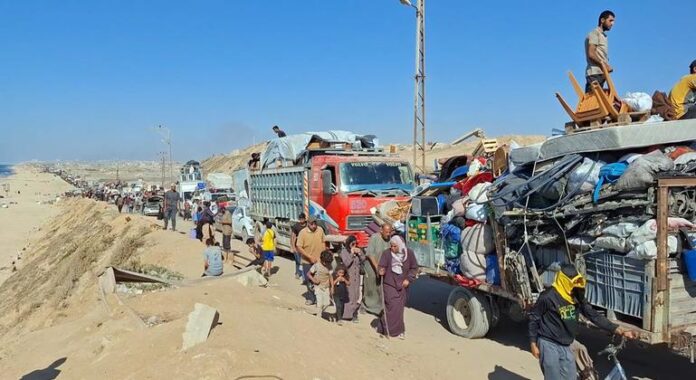In a context of growing tension and helplessness, the situation in Gaza is worsening every day. The United Nations Office for the Coordination of Humanitarian Affairs (OCHA) has reported a worrying escalation in deaths due to starvation, exacerbated by military operations and Israeli attacks in the region. The food crisis in Gaza has reached critical levels, with the closure of almost half of the malnutrition treatment centers, especially in the northern Gaza Strip, which was declared to be in famine a month ago.
The UN spokesperson, Stéphane Dujarric, announced that the Gaza Ministry of Health confirmed the death of 162 people, including 32 children, due to a lack of food since the crisis was officially declared. This situation is complicated by a severe blood shortage in hospitals, prompting the ministry to urgently request donations.
The living conditions for internally displaced persons are extremely precarious. Thousands of civilians, forced to flee to the south due to the Israeli military offensive, find refuge in improvised camps or temporary shelters. Often, families are forced to live out in the open, struggling to survive among the rubble of what they once called home.
In the midst of this devastation, humanitarian aid efforts are being hampered. Israel has restricted access, allowing only seven of the twelve humanitarian missions proposed to enter Gaza. OCHA has stressed the importance of safe and unrestricted access for humanitarian workers, recalling the obligations under international law to ensure that aid reaches those who need it most.
The international community continues to closely monitor this crisis, urging all parties involved to allow the necessary humanitarian intervention to mitigate the suffering of the affected population.



